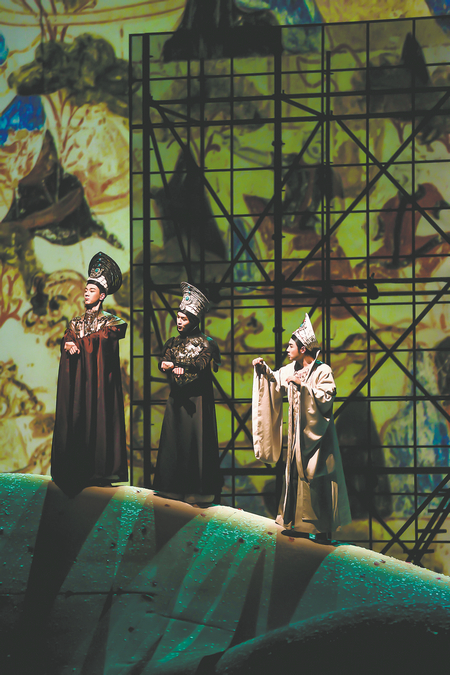From caves to the stage

Four representative Jataka tales depicted in the murals are merged into the production. [Photo/China Daily]
According to the musical's director, Chen Shizheng, the show's core lies in exploring the brilliance of human nature and magnitude of human emotions.
"The guardian remains at the caves out of her love for Dunhuang and the traveler rushes from Paris to pursue Dunhuang's art. Both are chasing their dreams, which is an intangible concept," Chen says.
The production extensively employs digital art and projection technology to convey this. Some scenes feature projections from three angles to generate a sense of perspective and depict the murals before, during and after restoration.
"For example, the guardian lives in one of the caves. Through the use of projection, the audience can see the cave, the mural, the scaffolding set up to restore it, and the oil lamp and makeshift bed where she sleeps," Chen says.
"This contrasts the toil of the preservers with the sublimity of the murals, allowing the audience to understand the relationship between art and humanity."
Including the Prince Sattva story, the musical incorporates four representative Jataka tales that intertwine with the main storyline that demonstrate Dunhuang culture and promote the virtue of benevolence.





 Print
Print Mail
Mail
